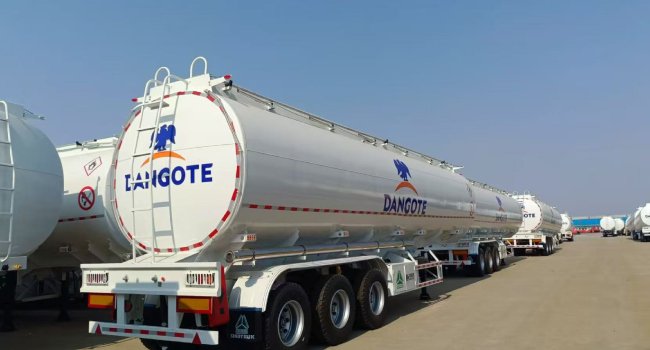Unlocking Nigeria’s Energy Future: The Case for CNG Adoption
BY OLUSOLA ALUKO

Nigeria has faced the dual challenges of energy poverty and environmental degradation for many years. However, a promising revolution is unfolding in the nation’s energy landscape.
With over 180 trillion cubic feet of natural gas reserves, Nigeria possesses a vast clean energy potential. Yet, millions of Nigerians continue to rely on polluting fuels like diesel and petrol, resulting in significant exposure to toxic air.
For instance, air pollution levels in Lagos are reported to be between 6 and 10 times the maximum level recommended by the World Health Organization. But what if Nigeria could leverage its abundant gas resources to power a cleaner, more sustainable energy future? The answer lies in the adoption of Compressed Natural Gas (CNG), a transformative solution that could reshape Nigeria’s energy trajectory.
CNG is a cleaner-burning fuel suitable for powering vehicles, generating electricity, and fueling industrial processes. Compared to traditional fuels, CNG produces significantly fewer greenhouse gas emissions and air pollutants, making it an attractive alternative for environmentally conscious nations.
Moreover, Nigeria’s substantial natural gas reserves, estimated at approximately 5.94 trillion cubic meters as of 2023, play a crucial role in reducing reliance on imported fuels and enhancing energy security By adopting CNG, Nigeria can unlock substantial economic benefits, including job creation, stimulation of local economies, and a reduced burden of fuel imports on the nation’s trade balance.
The adoption of CNG in Nigeria offers numerous advantages, particularly in cost savings for individuals and businesses.
According to a report by the Nigerian National Petroleum Corporation (NNPC), CNG is approximately 40% cheaper than petrol and 40%-60% cheaper than diesel.
For instance, a research by experts back in 2024 showed that a vehicle in Lagos switching from petrol to CNG can save up to ₦30,250 per week on fuel costs. This significantly improves the livelihoods of millions of Nigerians who depend on transportation.
Furthermore, CNG adoption reduces greenhouse gas emissions and air pollution. Nigeria ranks among the top 11 countries with the worst air quality globally, according to the World Health Organization (WHO).
Switching to CNG can significantly reduce the country’s carbon footprint and improve air quality. A University of Lagos study found that replacing diesel with CNG can reduce particulate matter emissions by up to 90%, positively impacting public health, particularly in urban areas like Lagos and Abuja.
The CNG industry also stimulates economic growth and creates new job opportunities. It requires a range of skilled professionals, from technicians and engineers to sales and marketing experts.
The CNG industry has the potential to generate over 50,000 new jobs in Nigeria within the next five years. Additionally, it boosts local economies by reducing reliance on imported fuels and increasing demand for domestically sourced natural gas.
Moreover, CNG adoption enhances Nigeria’s energy security and reduces dependence on costly fuel imports. Nigeria spends billions of dollars annually on fuel imports, negatively impacting its trade balance.
According to the International Energy Agency (IEA), Nigeria has the potential to become a major player in the global CNG market, with export opportunities to other West African nations.
However, several challenges hinder widespread CNG adoption. One major obstacle is the lack of supporting infrastructure, including CNG refueling stations, transportation networks, and storage facilities.
The Nigerian Midstream and Downstream Petroleum Regulatory Authority (NMDPRA) estimates that Nigeria needs at least 1,000 CNG refueling stations. Addressing this requires targeted investments. Additionally, supportive policies and regulations, such as tax breaks, subsidies, or low-interest loans, are crucial.
Another challenge is the high upfront cost of vehicle conversion to CNG, ranging from N300,000 and N400,000, which can be a barrier for individuals and small and medium-sized enterprises (SMEs). Financing options, such as low-interest loans or grants, are needed to facilitate this conversion.
The Lagos State Government’s financing program for taxi operators is a positive example.
Public awareness about the benefits of CNG is also lacking. A Nigerian National Petroleum Corporation (NNPC) survey indicated that only 22% of Nigerians are aware of CNG benefits. Public awareness campaigns, led by the government, private sector, or civil society, are essential to educate the populace.
Furthermore, the shortage of technical expertise and capacity is a significant challenge. The Presidential Compressed Natural Gas Initiative (Pi-CNG) has outlined a comprehensive training program to support the CNG industry’s growth in Nigeria, with an ultimate target of 10,000 trained professionals by 2027. Training and capacity-building programs, such as those offered by the University of Lagos’s Center for Gas and Petroleum Engineering, are crucial.
To fully realize the potential of CNG, Nigeria must address these challenges through collaborative efforts involving the government, private sector, and civil society. Investments in CNG infrastructure, public awareness campaigns, and technical expertise development are essential.
Companies like Atlas Copco Nigeria, with their expertise in CNG station design and installation, can play a vital role in this process.
As a key stakeholder in the adoption and application of CNG in Nigeria, the Atlas Copco Group is well-positioned to support the country’s transition to cleaner energy. With Nigeria’s abundant gas reserves, Atlas Copco’s efficient equipment can process the gas for various applications, including mobility, power generation, and industrial use.
With a proven track record in Nigeria, Atlas Copco Nigeria has been instrumental in powering numerous CNG projects since 2012. We have supported notable clients such as Green Fuel, Power Gas Global, Axxela Nigeria, NNPC, Seven Up Plc among others. Currently, we are finalizing the commissioning of the largest single mother station with eight compressors for Gastech Nigeria at Sagamu.
Our local service center, equipped with trained personnel, ensures seamless installation, commissioning, and maintenance of our equipment, demonstrating our commitment to delivering reliable solutions for Nigeria’s energy future.
As Nigeria looks to the future, it must seize the opportunity presented by CNG to create a vibrant ecosystem that benefits all Nigerians. This requires a sustained commitment to sustainable energy practices, reduced reliance on imported fuels, and the development of necessary skills and expertise.
In conclusion, the adoption of CNG offers Nigeria a unique opportunity to transform its energy sector, drive sustainable economic growth, and reduce its environmental footprint.
With the right policies, investments, and partnerships, Nigeria can unlock the full potential of CNG and build a more sustainable and prosperous future for generations to come.
Olusola Aluko is the Regional General Manager/Managing Director at Atlas Copco Nigeria, a leading provider of industrial sustainable solutions like CNG, industrial air and gas compressors, vacuum and dewatering pumps, nitrogen and power solutions













